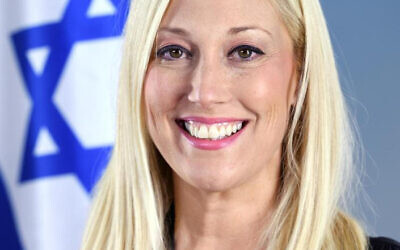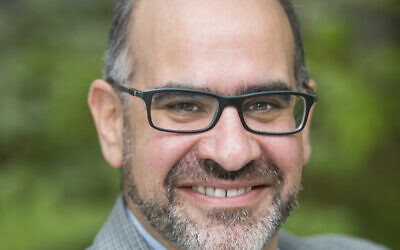Israel’s March 23 Vote May Lead to Fifth Elections
This will be the country’s fourth election since April 2019.
Isaac Herzog, chairman of The Jewish Agency for Israel, opened a March 14 webinar entitled “Understanding Israel’s Ongoing Election Saga,” by stating, “Israeli politics is always extremely complicated.”
The upcoming March 23 election is even more complex because it is the country’s fourth election in just two years.

The webinar, sponsored by the Jewish Federation of Greater Atlanta, was designed to remind the Atlanta community – and wider diaspora – that even though Israeli politics appear confusing and removed from the U.S. experience, they have an impact locally. Especially, “around the recognition of diverse ways of practicing Judaism,” said Rich Walter, vice president of programs and grantmaking at the Jewish Federation.
Facilitator of the webinar, Walter noted that “there have been numerous programs over the past two years in our community that have focused on the mechanics of the electoral process as well as the parties and their platforms.
“What’s been missing is an opportunity to further explore why this is important to American Jewry and ultimately why is it important for global Jewish peoplehood. This thinking also informed our choice for panelists and presenters. We wanted people who not only knew Israeli politics from the inside, but also those who understand the diaspora, the Israel relationship, and how Israeli politics impact us.”

He was referring to not only Herzog, but also Israeli Minister of Diaspora Affairs Omer Yankelevitch, both of whom Walter stressed “grapple with issues of Jewish peoplehood and politics on a daily basis.”
Because she was traveling to the U.S. during the webinar, Yankelevitch recorded her message to the 200-plus participants. Referring to how Israelis will vote on March 23, she suggested that they will have several issues in mind, including the COVID pandemic, national security and “what it means to be the nation state of the entire Jewish people. Politicians will come and go but the relationship between Israel and Jews will continue,” she said.
Yankelevich faulted Israel for failing to listen to Jewish voices outside of Israel. She stressed dialogue and a “consultative process.” The Jewish people, she said, face a crisis in Jewish identity and engagement and emphasized that “this conversation must continue no matter who sits in the next government.”
The importance of dialogue between Israelis and diaspora Jews was also underlined by Josh Schwarcz, secretary general and director of external relations at The Jewish Agency. Although COVID has curtailed the program, Schwarcz talked about how he’s brought members of the Knesset, the Israeli parliament, to the U.S. to learn more about the community here and the various ways it practices Judaism.

Speaking specifically about the upcoming election, Schwarcz detailed the divisions within Israel, including the Orthodox-secular divide and the gap between voters who are pro-Prime Minister Benjamin Netanyahu and those against him. “This is not an ideological election,” he said. “It’s all about for or against and it’s completely even.” The latest polls out of Israel validate that statement.
Schwarcz explained the difficulty of putting together a majority coalition – 61 seats out of the 120 in the Knesset – after the election. The anti-prime minister group, he noted is not homogeneous, encompassing “the far right to the socialist left. All they have in common is not wanting the prime minister.”
He added that he believed it will be easier for Netanyahu to put together another coalition government because even if he doesn’t reach 60 Knesset members, he could possibly convince another one or two to leave their parties for his coalition.
The second most likely outcome is for Israel to go to a fifth election, Schwarcz said.

Knesset Member Ruth Wasserman Lande, who is a member of the Blue and White Party – currently in Netanyahu’s coalition government – explained that if there is no clear outcome of the current election, “the transition government would be extended.”
In the two elections in 2019, there was no decisive victory for any party and Netanyahu continued to lead transition governments. However, if this election leads to continued transition governments until November, her party leader Benny Gantz would become prime minister in November, as required by the coalition agreement.
Schwarcz said the continual need for elections in the last two years is because “so many parties won’t sit [in a government] with Netanyahu. Ninety percent of the election problem is due to Netanyahu.”

But the need for one election after another has led to election fatigue, Walter and Wasserman Lande agreed. “There’s fatigue in every sector” of the country, she said. Even more critical is the “lack of trust between the voter and the administration. This is the worst, losing the trust of the public.” She proposed that the whole electoral process might need to be changed. “There’s no seeming solution. It seems like the coming election is a stepstone to the fifth election.”




comments